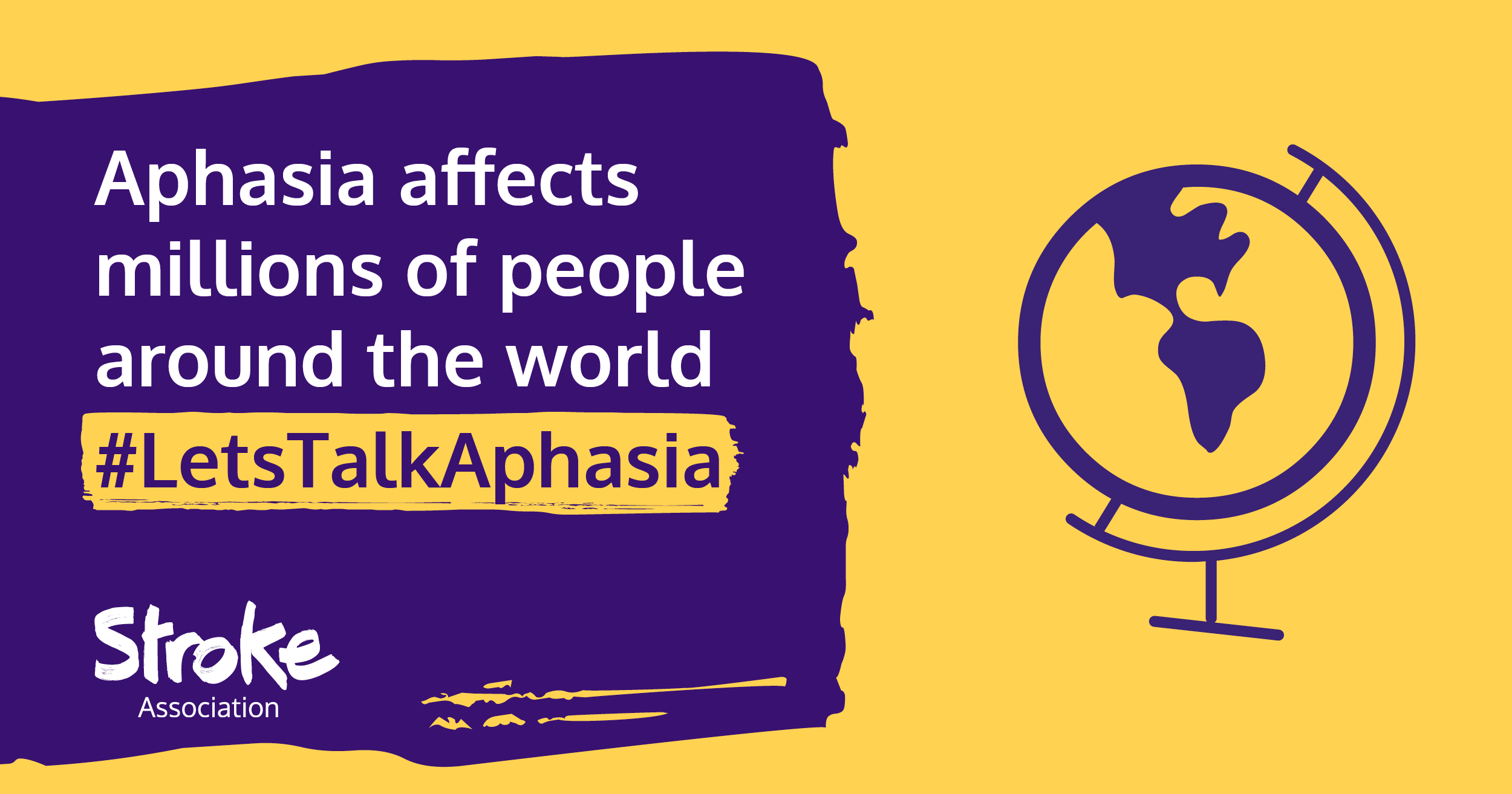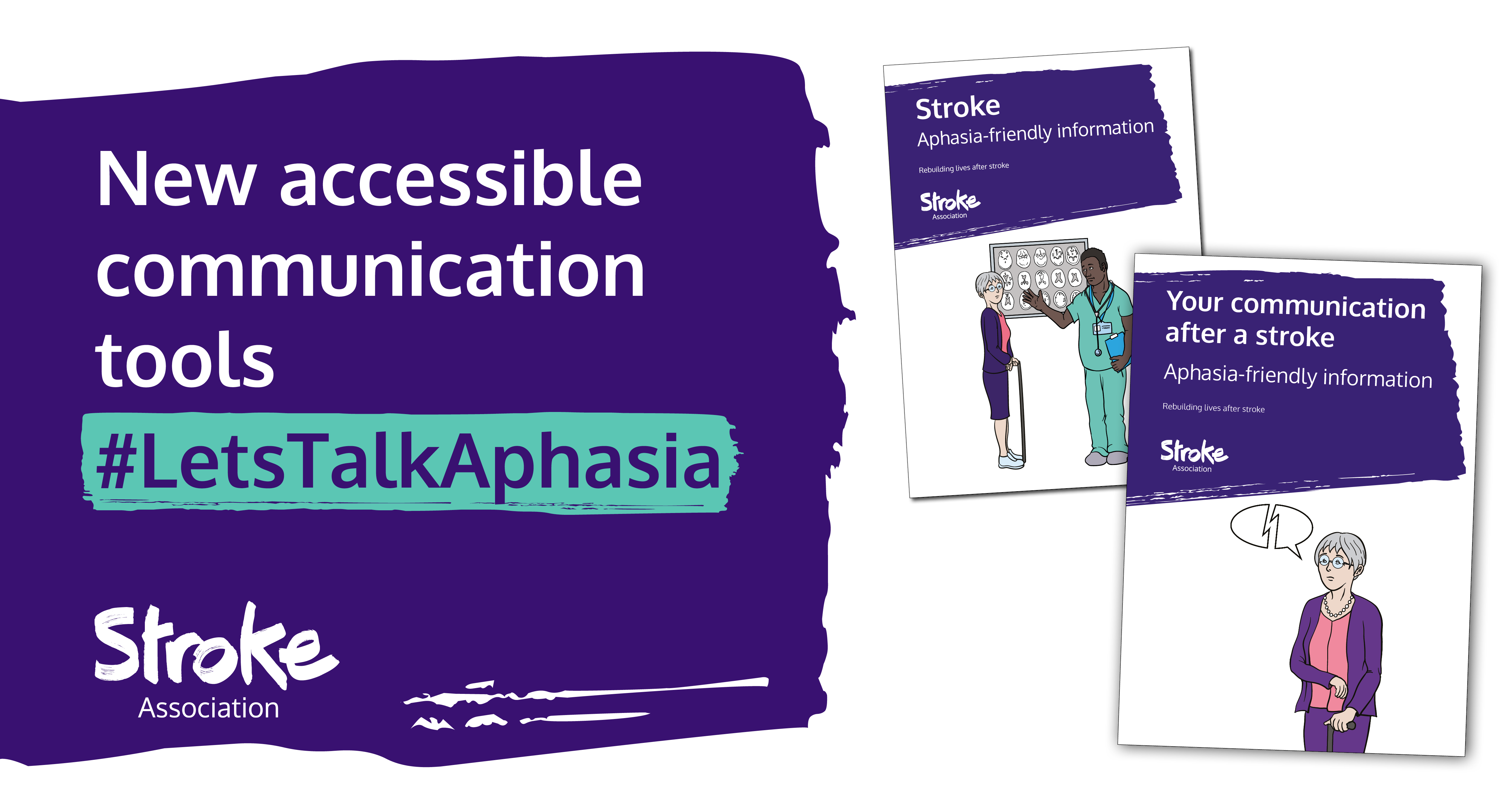Our spring campaign "Let's talk aphasia" aims to raise awareness of aphasia and its impact on stroke survivors, their families and friends. As part of the campaign, we'll be releasing a film on 26 May: When the Words Away Went. Watch the film trailer now.
To celebrate Stroke Awareness Month 2023 (May) and Aphasia Awareness Month 2023 (June), we are providing new communication tools to help stroke survivors with aphasia. These tools include:
Two aphasia-friendly information guides.
A Communication Picture Book to help stroke survivors communicate well at home and in the community.
Find out more about the free communication tools and practical information.
On this page
Join the campaign
Get the toolkit
Connect with us online
Join the campaign
How you can support the campaign on social media
We would love for you to join us on social media throughout May and June, using the hashtag #LetsTalkAphasia with a link to our aphasia webpage. We've provided images in all formats for you to use below.
Help us raise awareness of aphasia and bust common myths using our social media toolkit.
You are the experts on your own experience. We would love it if you could share a part of your journey with aphasia. Such as:
How you learnt what aphasia was.
Something that is difficult with aphasia.
Things that help you when talking to others.
Healthcare and stroke professionals
We'd love for you to:
Share any myths about aphasia from your experience to help combat misconceptions.
Share or use our new communication tools that can help your patients to communicate with confidence. These will be available to order soon.
We'd really appreciate you not only spreading the word about the facts and context above but also sharing steps you're taking to be an aphasia-friendly workplace. A great start is Communication Access Training, which you can find online.
Use our toolkit
Find everything you need to support Aphasia Awareness Month 2023 below.
Context for your social media posts
Aphasia is a complex language and communication disorder resulting from damage to the language centres of the brain. It has multiple potential causes, including head injury or a brain tumour, but stroke is the biggest cause.
Although aphasia causes communication difficulties, it doesn't affect intelligence. People with aphasia still think in the same way. They are just unable to communicate their thoughts easily.
Aphasia can affect independence, work life and the ability to communicate.
Facts for your social media posts
4 in 10 stroke survivors (40%) have aphasia soon after their stroke.
Although the most obvious symptom of aphasia is the effect it can have on speech, it can also impact the ability to read, write and use numbers - including dealing with money and telling the time.
Aphasia will affect people in different ways and no two people will have the same difficulties.
Nearly two-thirds of stroke survivors have a communication problem due to a stroke such as aphasia or dysarthria.
When posting text graphics on social media, please make sure you're adding alt-text so that it's accessible.
Go straight to the Welsh language images.
English language social media images

Instagram post: download image
Instagram story: download image

Instagram post: download image
Instagram story: download image

Instagram post: download image
Instagram story: download image

Instagram post: download image
Instagram story: download image

Instagram post: download image
Instagram story: download image

Facebook cover: download image
LinkedIn cover: download image
Click on title or the '+' sign to see and download images in Welsh to use on your social media platforms.
Connect with us online
Be sure to tag us and share our content throughout Stroke Awareness Month 2023 and Aphasia Awareness Month 2023 - we've got lots of exciting stories and content coming!
Twitter: @TheStrokeAssoc
Instagram: @thestrokeassociation
TikTok: @thestrokeassociation
LinkedIn: Stroke Association
Facebook: Stroke Association




